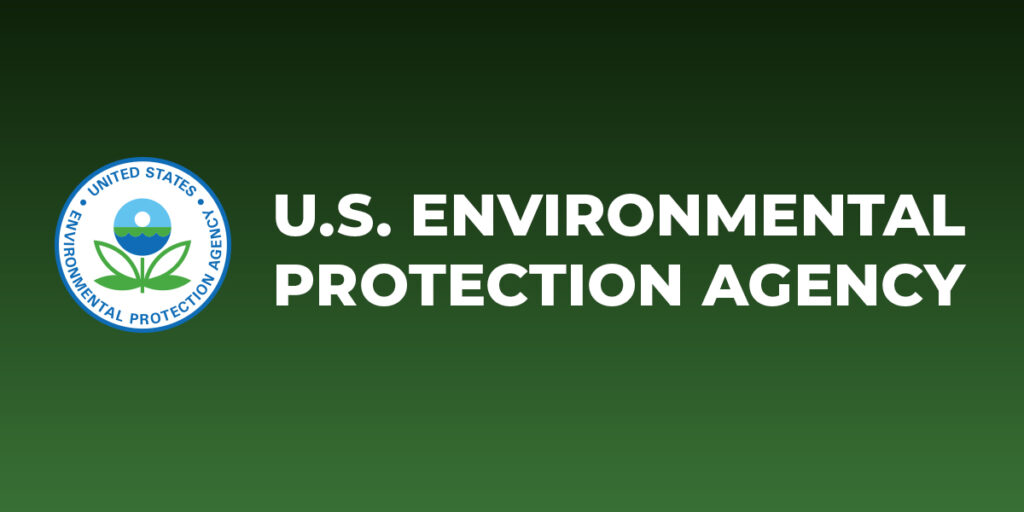 (AGENPARL) - Roma, 18 Marzo 2024
(AGENPARL) - Roma, 18 Marzo 2024(AGENPARL) – lun 18 marzo 2024 Issued: Mar 18, 2024 (5:28pm EDT)
If you wish to unsubscribe please do so
here: http://url6130.epa.mediaroom.com/ls/click?upn=u001.iqz6hAvLdUl-2FaSixKUG3iyFJBsxNAroAZOQ1BID8fKIiLAUfJX2sQlhu1tzKAOIu-2BU84uzAzSpWvmWyHnsNJDRYXWx5dlMz75Zp9ch-2BQlG6mQHPYjReZhS13hvd5qOopJyOj_-2B0Ok6Af7hyz7Kqg6CR74pYblAA1WjrUjKSJUAiv3NOub0DC4O7JPWGxIlQ7kBB-2FS2Uu31QzK4z9Ll42YKBAFM4ZAQP7DvbVmApm-2FcRQ8HMFL5AAhRWapyzvZJQXxPH7DSta-2BotUoh8B9L9rzdmUy6k8A3XvL2BSIfwnRIHJqSIY7J7yvUIhojMlzbLnz98r5uAjHM-2F6j4FyUf9yq5FpmQQ0VAVYhemvjzqXm-2BfZV8YC6SBcjLCkDrDV81WC4YrOoNH190FQ3PCph7Y4nUwhGFA-3D-3D
Ft. Lewis College students receive $75K EPA award for water sampling project
to better detect bacteria in surface waters
DURANGO, Colo. – Today, the U.S. Environmental Protection Agency (EPA) awarded
$75,000 to a team of Ft. Lewis College students for a water bacteria detection
research project.
As part of EPA’s People, Prosperity and the Planet (P3) Program, the award
will provide funding for the students to develop and validate a scientific
system to rapidly detect specific waterborne bacteria from environmental water
samples, known as an open-source Droplet Digital Polymerase Chain Reaction.
The students will test water samples from the Animas River and communicate the
importance of water resource protection to communities in the Four Corners
area.
“Access to clean water is critical for protecting human health and the
environment,” said KC Becker, EPA Regional Administrator. “Congratulations
to these Fort Lewis College students, whose ground-breaking project develops
innovative solutions to some of the most difficult water-quality challenges
facing our region.”
This award is part of nearly $1.2 million in funding granted to 16 college
student teams across the nation. The two-year project funding promotes
hands-on experience, enabling students to turn their creative design and
engineering ideas into reality, while helping solve real-world environmental
challenges. Students will propose innovative and sustainable ideas and
concepts and carry them through the research, design and demonstration stages.
During the second year of the award, student teams will showcase their designs
at EPA’s National Student Design Expo.
Teams from the following institutions are also receiving funding via EPA’s
20th Annual P3 awards:
Auburn University, Auburn, Alabama, for Biochar-Enabled Platform for Enhanced
Destruction and Defluorination of Short-Chain Per- and Polyfluoroalkyl
Substances (PFAS) in Water
Fashion Institute of Technology, New York, New York, for Developing Reusable
and Antiviral Face Masks from Plastic Waste
Mercer University, Macon, Georgia, for Navigating the Food-Energy-Water Nexus
through the Conversion of Food Waste to Biocrude
New Jersey Institute of Technology, Newark, New Jersey, for Two-dimensional
Molybdenum Disulfide (MoS2)-Based Field Effect Transistor Sensors for Airborne
PFAS Detection
New Jersey Institute of Technology, Newark, New Jersey, for Zirconium-modified
Mica Coupled with Nanobubbles for Enhanced Phosphorus Removal, Recovery, and
Reuse
Old Dominion University, Norfolk, Virginia, for Production of Lithium
Carbonate from Geothermal Brine by Selective Extraction of Lithium Using a
Novel Ion Sieve Method
Queens University of Charlotte, Charlotte, North Carolina, for Biodiesel
Production from Ethanol and Glycerol: a Living Laboratory for STEM
Students
The State University of New York at Binghamton, Binghamton, New York, for
Sensor on Wheels (SOW): A Field-Deployable Environmental Pathogen Detection
Tool
University of Central Florida, Orlando, Florida, for Solar-driven
Photodegradation of Microcystin Using a Novel Gold-decorated Nickel
Metalorganic Framework (Au/Ni-MOF)
University of Connecticut, Storrs, Connecticut, for 100% Compostable Packaging
Film
University of Maryland, College Park, Maryland, for Enhancement of
PFAS-Contaminated Organic Wastes Treatment in Anaerobic Digestion by Carbon
Materials
University of Nevada, Reno, Nevada, for Understanding and Predicting
Disparities in Organic Contaminant Levels in Blood among the U.S.
Population
University of Tennessee, Knoxville, Tennessee, for Cellulose-Metal Organic
Frameworks Hybrid Adsorbent for PFAS Removal from Water
Widener University, Chester, Pennsylvania, for Developing Geopolymer Cement
using Sewage Sludge Ash as Precursors
Worcester Polytechnic Institute, Worcester, Massachusetts, for 3D-Printed
Floating Photocatalyst Structures that Mimic Natural Objects to Combat Harmful
Algal Blooms
More information about this year’s recipients, EPA’s P3 Program and the
EPA National Student Design Expo Experience is available online.
To unsubscribe or change your settings click here:
http://url6130.epa.mediaroom.com/ls/click?upn=u001.iqz6hAvLdUl-2FaSixKUG3iyFJBsxNAroAZOQ1BID8fKKhIILjisBDEktm3-2BIos9X6AcyJJJpJMZI3xA15FQZsw1RZWL57qgncrKVaQsWZnBIxH-2FUj6IfeyDfKUn8BVUnaABp8xYuIy00K1295jFqyeQ-3D-3D76EP_-2B0Ok6Af7hyz7Kqg6CR74pYblAA1WjrUjKSJUAiv3NOub0DC4O7JPWGxIlQ7kBB-2FS2Uu31QzK4z9Ll42YKBAFM4ZAQP7DvbVmApm-2FcRQ8HMGjtrN7929qJSHiP7J-2FkZuPwvZ8aVwdV-2BrbkbA5BS55GhYII9l-2BDN9qL4i4qDAmjm04FZf63lNogLfFTy4mwl4gesAdMOj1pg2E6b7Clzmafh64T5G9B9SPOZB5QiKmmTInVlSqV5fuukXiMgf78xg7qih558GH7eBjBsVTvRE8GA-3D-3D

